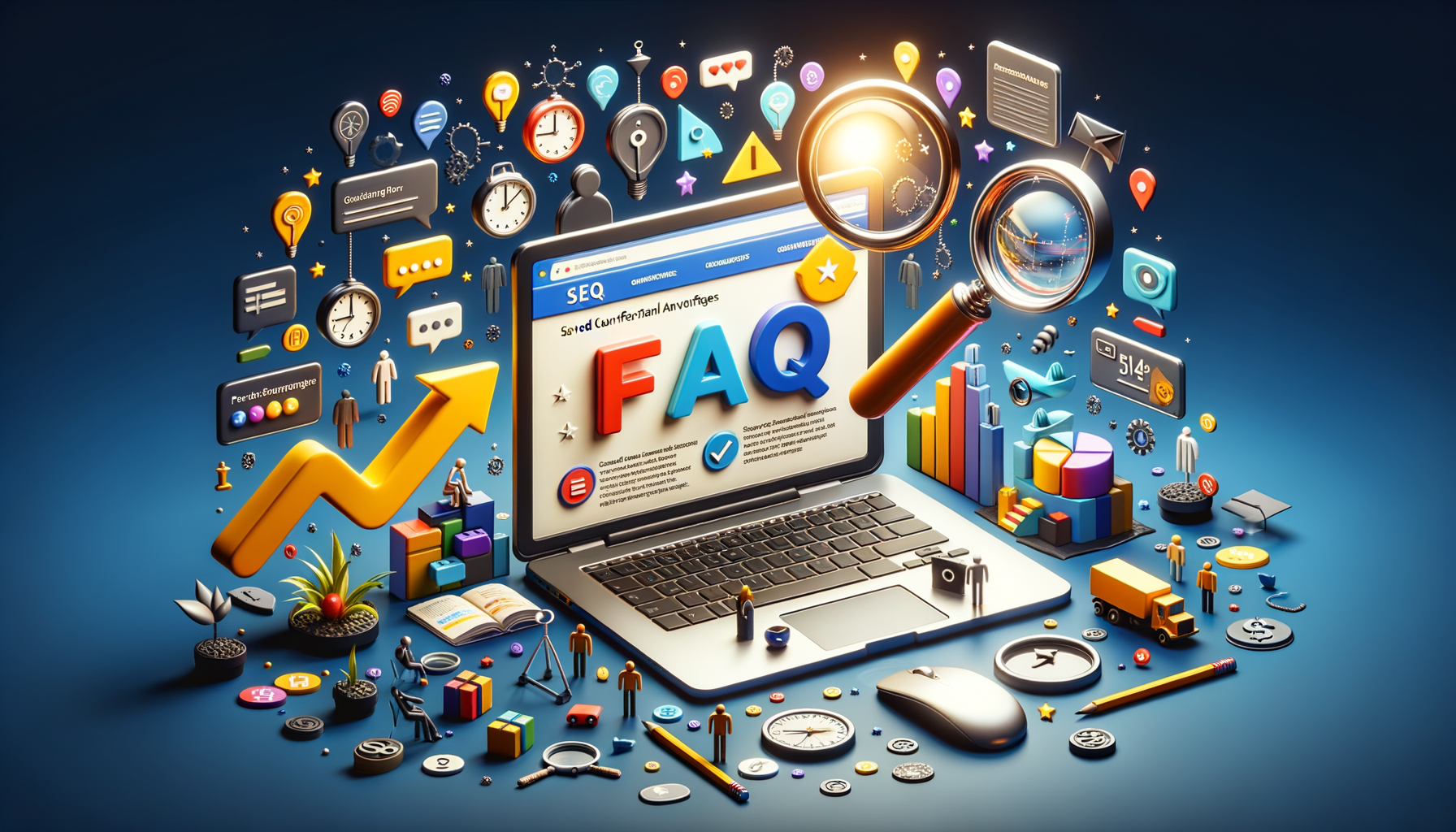“Unlocking the Power of FAQ Pages: Benefits and Best Practices for Your Business”

In this new digital era where the internet serves as an apex source of information for consumers, every business website should make it a priority to include a frequently asked questions (FAQ) section. A well-crafted, customer-centric FAQ page can go a long way in not only catering to customer basic information needs but also substantially participating in SEO, bolstering the website’s online presence, and improving your digital marketing strategy. So, let’s delve deeper into the numerous benefits of having an FAQ page, and some best practices to implement it effectively.
**Understanding the Importance of an FAQ Page**
An FAQ page is a suitable platform where enterprises can answer common inquiries or concerns raised by their audience. It primarily makes the user experience enjoyable since users can get answers to their questions without contacting customer service. It also indirectly demonstrates the command and knowledge the business has about its products or services, thus elevating customer trust and loyalty. But it doesn’t stop there; an FAQ page has even more to offer in terms of search engine optimization (SEO), saving resources, and nurturing leads.
**SEO Benefits of an FAQ Page**
Effective SEO has become a necessary tool to catapult websites to the top of search engine results. As the very essence of an FAQ page is to provide information and answer questions, it naturally contains keywords or phrases that people typically use while searching. By strategically placing those SEO-friendly keywords in the FAQ page, it increases the website’s visibility, boosts organic traffic, and improves the website’s ranking on search engines.
Besides, Google’s algorithm appreciates when a website addresses many questions because of its focus on user intent. Moreover, Google’s recent addition, the “People Also Ask” feature has made FAQ pages an even more valuable asset in SEO. This feature pulls the populated Q&As from sites and presents them when relevant to a user’s search request. Therefore, the website’s FAQ content may appear in this area, providing extra exposure.
**Saving the Business Time and Resources**
An FAQ page can also serve as a first-line customer support system, freeing up the resources spent on repetitive questions. It reduces the burden on customer service by offering immediate answers to common queries. While customers appreciate quick replies, it allows the business to focus more on complex issue resolution, improving efficiency, and saving time.
**Nurturing Leads and Reducing Sales Effort**
Providing the right information at the right time to potential customers is critical in the sales process. A well-planned FAQ page will do just that by effectively assisting customers through their buying journey. Whether it is about the product or service, the return policy, or the shipping process, customers feel more secure about their purchase decision when their concerns are promptly addressed. This process aids in conversion optimization and reduces the sales effort.
**Tenets of a Good FAQ Page**
Now that we understand the significance of an FAQ page and how it contributes to a business’ digital marketing agenda, let’s look at guidelines to create an effective FAQ page:
**Importance of Research**
The first step towards creating an effective FAQ page is to compile a list of common questions your customers usually ask or might want to ask. It involves gathering information from customer service interactions, surveys, social media, and analyzing customer’s browsing behavior on the website.
**Ensure User-Friendly Format**
It’s crucial that the FAQ page is accessible, user-friendly, and easy to navigate. Group the questions into categories for better organization. The use of ‘accordion-style’ or ‘click to reveal’ answers is preferable as it prevents the page from becoming text-heavy. Have a search function for users who want to find answers quickly.
**Keep the Language Simple and Conversational**
Avoid industry jargon and use straightforward language. The FAQ page’s purpose is to help, not to confuse. Keeping the language simple and conversational also humanizes your business, creating an emotional connection with the customer.
**Link to Relevant Pages**
Linking answers to more detailed information on the website enhances user experience, makes your FAQ page a navigation tool, and subtly guides users in their journey. Interlinking also supports SEO.
**Keep it updated**
Just like any other content, FAQ pages also need regular updating. Keep revising the questions and answers as per the evolving customer inquiries and business offerings.
**Use Visuals**
A picture is worth a thousand words. Using visuals like pictures, illustrations, infographics, or videos can help explain the answers better and make your FAQ page more engaging.
**Include a Call-to-Action (CTA)**
Using CTAs on the FAQ page drives users towards their next step – be it filling a form, signing up for a newsletter, or making a purchase. It’s a great way to guide user behavior along the conversion funnel, turning information-seeking visitors into potential leads and customers.
**FAQ Schema for SEO**
Implementing FAQ Schema markup to your FAQ pages can improve your search engine visibility. It allows search engines to produce rich snippet search results with your FAQs. This presents an opportunity to occupy more real estate on search engine result pages (SERPs).
**Conclusion**
In summary, an FAQ page is a multifaceted tool that serves numerous benefits. It enhances user experience, saves resources, nurtures leads, and plays a significant role in improving SEO. However, the effectiveness of an FAQ page largely depends on how well it is implemented, which requires in-depth research, a user-friendly format, simple language, regular updates, and the smart use of visuals, links, CTAs, and schemas. An astute digital marketer should leverage FAQ pages as an integral part of their strategy to maximize their digital marketing outcomes.

Recent Comments